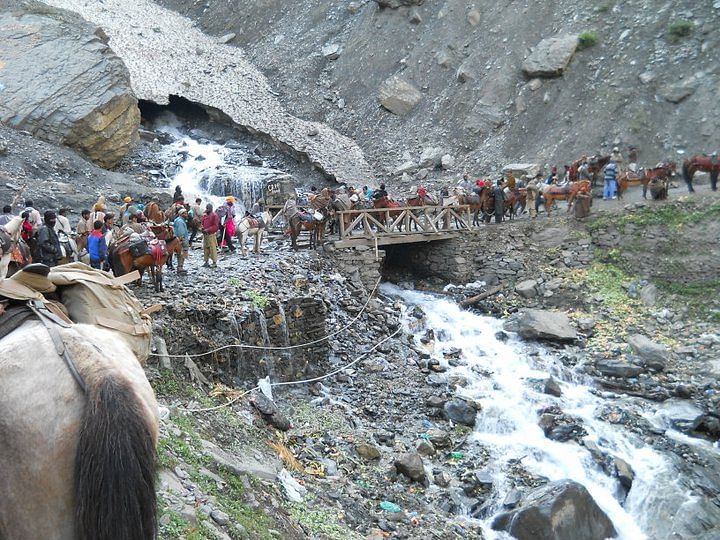J&K police to hand out pamphlets with security advisory; pilgrims to face time restrictions along route.
New Delhi: Radio frequency (RF) tags on vehicles, satellite monitoring of their movement, CCTV cameras and jammers are all part of the multi-tier security arrangement that has been put in place to thwart any terror attack during the annual Amarnath Yatra in Kashmir, due to start Thursday.
The Jammu and Kashmir police will issue a security advisory through pamphlets and create awareness among the pilgrims given that the yatra route passes through the violence-hit south Kashmir region.
In June last year, at least seven pilgrims, including six women, were killed and 19 injured after a bus carrying them was attacked by militants in Anantnag.
“We have a multi-tier security arrangement for the pilgrim camps as well as the yatra route. There is also proper coordination among all the security forces, including the Army and the state police,” deputy inspector general of police (Central Kashmir range) V.K. Birdhi told The Print. “We are prepared to deal with any kind of perceived threats.”
The DIG also said there will be time restrictions on pilgrim movement.
“The pilgrims could expect cut-off timings as part of the security advisory. They should not violate the prescribed timings and we have suggested that they do not stray from the decided route. There are clear-cut indications with sufficient security advisory on the pamphlets, which would be distributed among them,” Birdhi said.
This year, a total of 1.8 lakh pilgrims have registered to participate in the yatra to the holy Amarnath cave, which is located at an altitude of 3,888 m and about 140 km from Srinagar.
There are two base camps in Pahalgam and Baltal. It takes five days to reach the holy shrine via Pahalgam.
Challenge for new administration
The state has been under the governor’s rule since 19 June, when the BJP pulled out of the alliance with the PDP. Ensuring a safe yatra is among the challenges faced by the new administration.
Amarnath yatra is a very important part of Hindu-Muslim unity in the Valley, as local Kashmiri Muslims help the pilgrims to reach the cave through the challenging mountainous terrain. Any attack on the yatra could spark communal tensions within the state and across the country.
There have been at least four terror attacks on the pilgrimage, including the one last year. In 2000, more than 30 people were gunned down at the Pahalgam base camp and in 2001, 13 people — including three women pilgrims and two police officials — were killed and 15 injured in an attack by militants at Sheshnag, halfway along the route to the cave-shrine. In 2002, nine pilgrims were gunned down and 30 injured at Nunwan camp near Pahalgam.
“Security arrangements are well in place. We have also issued a weather advisory. The yatra will conclude on 26 August,” Rajesh Sharma, an official of the Shri Amarnath Shrine Board, told The Print. Defence Minister Nirmala Sitharaman had Monday reviewed the security arrangements.
